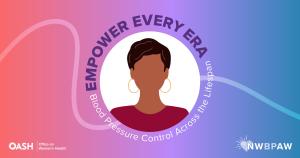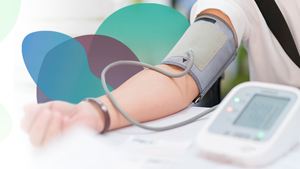Hypertension, or high blood pressure, is a serious public health issue and a leading cause of death and disability, both globally and in the U.S. Nearly 50% of US adults have hypertension, and nearly half are women, including almost 1 in 6 women of reproductive age.
The U.S. Department of Health and Human Services (HHS) Office on Women’s Health (OWH) is excited to announce the 15 Phase 2 awardees of the HHS Hypertension Innovator Award Competition. The national competition was developed by OWH to identify programs that use innovative methods of blood pressure...
Join the Office on Women's Health in helping women and girls reach and maintain a healthy weight. Enter our Shape of Health: An Obesity Prevention Game challenge by creating a video game focused on obesity prevention or weight control for women or girls. In the United States, 2 out of every 3 women...
“How could this happen to me?” This is what one of my colleagues says her mother kept saying after she found out she had heart disease. Jane* thought she’d done everything right. Before she was diagnosed at 67, she felt like she was in the best shape of her life. She exercised daily, chose mostly...
Stroke happens to 1 in 5 women. In the United States, someone has a stroke every 40 seconds. This is unfortunate because most strokes are preventable. Stroke happens when blood flow to the brain stops or is blocked, which causes brain cells to die. There are two types of stroke: One is caused by a...
Did you know that March is National Kidney Month? It’s a time to talk about kidney health and chronic kidney disease, a common disease among adults in the United States. That’s why we asked Dr. Kajal Patel, a doctor who specializes in kidney care and disease treatment, to share how women can keep...
Did you know that heart disease is the number one killer of American women, and stroke is fourth? The good news is there are steps you can take to lower your risk of heart disease and stroke at any age. We spoke to Dr. Rachel Dreyer, an Assistant Professor at the Yale School of Medicine who...








